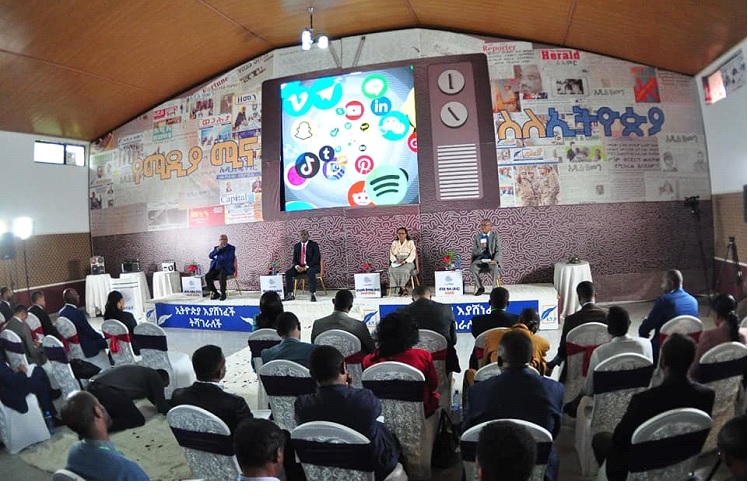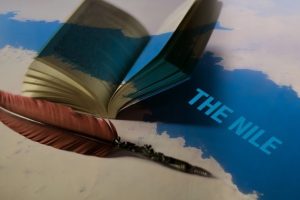
BY YOHANES JEMANEH
Its great influence on public affairs enabled media to have strong power symmetric to government organs which have won it the title of the Fourth Estate. This estate has decisive soft power that can shape the way people think or even decide on issues. This power can be exercised positively or negatively that’s why it needs both freedom and accountability.
In fact, media has both constructive and destructive roles. If utilized properly, media can be a means to nurture an informed society and build a nation. On the contrary, if it goes unchecked, it may lead to disaster, chaos, and conflict.
As witnessed in previous times, countries descended into bottomless pits due to unethical reporting and negative journalistic practices. That is why experts are calling for striking a balance between press freedom and ethical reporting and accountability of the media.
Ethiopian media is no different. Amidst the make-or-break transition time of the country, Ethiopia needs ethical and responsible reporting. Freedoms of the press and media accountability have in fact been the subject of debate in the country particularly since the 2018 reform.
Lately, the Ethiopian Press Agency hosted a panel discussion themed ‘Media’s role in Ethiopia’ in Gondar town.
Presenting a paper on the topic of Press Freedom and Responsibility, Addis Ababa University Journalism Lecturer Agaredech Jemaneh (Ph.D.) said media play a crucial role in the overall development of a given country. Hence, it needs to have a free atmosphere with due accountability to exercise this role.
She believed that, the media need to have a free environment in which it is also accountable for what it does in course of playing national responsibility.
The more the restriction of press freedom induces the more prevalence of hindrances to the development efforts of the people and the progress of civilization. Therefore, according to Agaredech, this freedom should come along with the necessary responsibility and accountability given that countries that freed the media unconditionally faced disintegration.
Media, as a key instrument that provides people with updated information about multifarious issues, needs to have the freedom to reach out to its sources including communication bureaus and various government officials, Agaredech said while stressing that the officials ought to play their responsibility.
Journalists must have complete information or understanding of any issue before appearing in the media. Therefore, the government must facilitate conditions in which media practitioners can obtain the information they want since the latter will become ineffective if they are unable to get information on time.
Since dictators understand the power of information, media freedom has been challenged for a long time. The media has its own role in the history of Ethiopia’s independence. A favorable environment should be created for the media to fulfill its “fourth estate” role of monitoring and controlling the legislator, the executive, and the judiciary branches of the government, according to Agaredech.
Media has an irreplaceable positive role in strengthening solidarity and fostering social values. On the other hand, it undermines national unity, creates instability among the people, erodes values, and harms society if it is not managed properly, she noted.
Albeit the increment in the number of media these days, there are still constraints in terms of addressing diversity, mode of presentation, completeness, and consistency of reports. It is important to create equal opportunity for all media and assist them to work on these issues.
According to Agaredech, the media professionals also have problems related to self-censorship, presenting incomplete reports. It is necessary to prepare every program in a way that is suitable for the public through empowering oneself and gathering complete information.
Media has a significant role for national unity, social development, and image building so that all media in the country should invest this power for ensuring national interest. They also need to exploit their freedom for to carry out their tasks with due responsibility.
Presenting a paper on “Media and National Interest” Professor Biruk Hailu explained that, media is one of the most important tools for ensuring the national interest of a given country. In cognizant of this fact, Biruk said mentioning developed nations that pay due attention and work on media development.
These days, it is not useful to sit back and pretend that the work speaks for itself. Therefore every achievement should be communicated well in the media. Especially in this time when the country faced challenges and unnecessary foreign pressures coming out from utilizing the media could probably affect the national interest, Biruk warned.
Social Media Accomplishments, Challenges, and Opportunities was the title of the third paper presented at the panel discussion by Mohamed Idris, Director General of the Ethiopian Media Authority.
He stated that, one of the changes brought about by the development of technology in the media sector is cyberspace and social media. The positive sides of social media are that it makes information widely and quickly accessible, creates opportunities for income, and stands together to protect the national interest. However, it has also negative sides including vulnerability to false information, harming productivity, emphasizing on emotionality instead of rationality, and creating confusion of responsibilities. It is important to expand knowledge of the use of social media and lead it as a sector through policy so as to reduce the damage it causes, according to the Director General.
Moderating the panel, Government Communication Service Minister Legese Tulu (Ph.D.) said that, media freedom can exist only when the country is prosperous and safe. Subsequently, the media should work together for the national interest and unity of the nation and avoid issues that invite conflict and divide the people.
He explained that, media freedom goes hand in hand with responsibility and its implementation is determined by the actual and current situation of the country.
Today, Ethiopia is striving to heal its wounds of long-established bitterness, violence, and war through peaceful talk, and national consultation. Last week the government has announced that it will remain committed to solving the Tigray crisis by all peaceful means. It has also unveiled its plan to resolve the remaining national problems under the national dialogue framework.
In this case, the role of the media is crucial to address the public about the overall process and progress of the national consultation. It is to be recalled that the Ethiopian National Dialogue Commissioners tasked with facilitating an inclusive dialogue and reconciliation have urged media organizations to play a constructive role in making the national dialogue a success.
In a meeting they held with media practitioners, Chairperson of the Commission, Professor Mesfin Araya mentioned that the national dialogue is a vital step to addressing differences of opinions and disagreements among various political and opinion leaders.
Albeit the commission is tasked to resolve differences and disagreements through broad-based inclusive public dialogue that engenders national consensus, the role of the media and communication in this regard is vital as media organizations have the capacity to reach the grassroots level, he stated.
Since the role of the media is to disseminate truth, knowledge, brotherhood, cooperation, and peace in various native languages and mother tongues, its role is vital in making the endeavor of the commission a success, the chairperson said.
As mentioned above by Professor Biruk and Agaredech, it is important to support the media by protecting and promoting its freedom and human resource development in order to obtain the needed benefit from the media for achieving the national goal.
By the same token, the media professionals are expected to get training on how to report major happenings that the country pays special attention to solving its problems like the national dialogue.
The national dialogue commission also eyeing at facilitating training to beat reporters on how to cover the upcoming national dialogue since it is a new phenomenon in the nation. Recently Professor Mesfin called on media organizations to get ready their reporters who will be offered training regarding issues of national dialogue to help journalists better understand how best to cover the issues of national dialogue.
To wrap up, supporting and protecting the fourth estate is the responsibility of every nation to obtain the ultimate benefit for achieving national interest. Despite the presence of media law, a lot remains to be done in creating enabling environment for the media to get information. In addition, capacity-building works must be strengthened to empower journalists in order to undertake their careers efficiently
The Ethiopian Herald 25 August 2022





